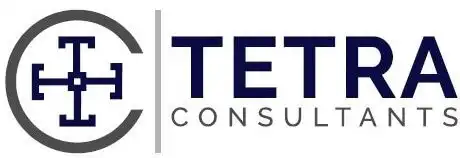How to set up company as a sole trader in New Zealand (NZ)?

Contact Us
A sole trader, also known as a sole proprietorship, is a common business entity adopted by self-employed people such as self-contractors, consultants, and freelancers who provide professional services. Individuals may choose to become sole traders because it allows them to control their business and retain the profits of their business. It is also easy to set up and has a low start-up cost. This is especially true for those who choose to register company in New Zealand (NZ). Before you learn how to set up as a sole trader in NZ, it is important to understand the advantages and disadvantages of being a sole trader as well as the requirements needed to become one.
Guide to set up as a sole trader in NZ

#1 What are the features of a sole trader?
a) Minimal requirements
Unlike a limited liability company, a sole trader is subjected to minimal government regulations and can be easily terminated or converted to a different business structure such as a limited liability company or partnership later on. It is also easy to set up as a sole trader because the business owner does not have to register with the Companies Office in New Zealand. Due to the minimal requirements and costs associated with a sole trader, a sole trader is an attractive option for business owners who are just starting a business.
b) Greater control over business
A sole trader allows a person to start a business as an individual without having to work with other people. Unlike a limited liability company which needs to appoint a Board of Directors or a partnership that requires two or more partners to share the profit of a business, a sole trader gives an individual sole control of the entire business. This provides the individual with greater freedom to run the business operation as he/she deems fit and retain all the profits earned from the business. However, obtaining loans or investments may be more difficult for a sole trader as compared to a company or partnership.
c) High levels of confidentiality
A sole trader offers greater confidentiality compared to other business structures. This is because a sole trader is not required to register with the Companies Office in New Zealand. Instead, a sole trader in New Zealand only needs to register with the Inland Revenue Department (IRD) to pay taxes.
d) Unlimited Liability
Being a sole trader may mean that you are placing your personal assets at risk in the case of liquidation of your business. This is because the sole trader is not regarded as a separate legal entity from the business. The individual sole trader is subjected to unlimited liability and will be held personally liable for all the debts and obligations incurred by the business.
e) Pays personal income tax
A sole trader will not pay corporate income tax. Instead, he/she will pay personal income tax on all the profits earned from the business. The sole trader can choose to claim work expenses to reduce the amount of taxable income. Depending on the size of the business, it may be more profitable for a business to be taxed based on corporate income tax. Since corporate income tax is taxed at a flat rate of 28% in New Zealand, it is usually more profitable to pay corporate income tax if the business earns a sizable amount of profits. However, if you are operating a small business, it may be more profitable to pay personal income tax on profits earned instead since the personal income tax rate ranges from 10.5% to 39% in New Zealand.
#2 What are the requirements to become a sole trader?
To become a sole trader in New Zealand, you must have a personal IRD number to pay income tax and GST. It is also necessary for you to obtain the required government licenses and permits needed by your business and prove that you possess the necessary qualifications to run your business. Additionally, you must register for GST if the business earns over NZD 60,000 annually. If you wish to hire employees as a sole trader, you must be registered as an employer with the IRD.
Depending on the type of business activity you are conducting, you may also need to prove that your business adheres to anti-money laundering rules. Typically, businesses that manage clients’ cash or assets, provide trust or company services, trade real estate, provide conveyancing services and handle large amounts of cash will need to comply with the Anti-Money Laundering and Countering Financing of Terrorism Act (AML/CFT).
#3 How do I set up as a sole trader in NZ?
The first step is to register business name in New Zealand. Although you can register your business name as your own personal name, you will not be allowed to advertise your products or services if your name has already been registered as a trademark by another business. As such, it is important to conduct a name search through the Ministry of Business, Innovation, and Employment (MBIE)’s ONECheck tool. You can register your business name as a trademark through the New Zealand Intellectual Property Office.
The next step is to register for a New Zealand Business Number (NZBN). Although a company registration number is not mandatory for a sole trader, you are highly recommended to get an NZBN if you conduct business activities in New Zealand. The NZBN is a unique number associated with a business in New Zealand. Obtaining an NZBN will grant you easier and faster access to government services, and allow you to interact with suppliers, clients, and other businesses more smoothly.
Once you have registered your NZBN, you are required to notify the Inland Revenue Department that you have become a sole trader. This will allow you to use your IRD number to pay income taxes on the income earned from your business. If you earn over NZD 60,000 annually, you will also be required to register for GST. Although a sole trader is not required to file annual accounts, a sole trader must keep accurate and complete financial records for a minimum of seven years. These records include banking information, proof of income, expenses, and invoices.
How we can help you set up as a sole trader in NZ
Before you set up your business in New Zealand, it is important to consider which business structure suits your business needs. Although a sole trader is easy to set up at a low cost, it does not offer the prestige that a limited liability company has. Hence, a sole trader may find it more difficult to attract clients and potential investors, as well as secure loans from financial institutions. Generally, Tetra Consultants recommends you set up as a sole trader if you are setting up a small business as an individual with a low annual turnover. If you expect your business to have a higher annual turnover and a more complex business model, it may be more ideal for you to consider a New Zealand company registration.
Tetra Consultants provides you with a fast and easy way to register company in New Zealand through our service package which includes company registration with New Zealand Companies Registry; provision of New Zealand nominee director, local company secretary, and registered address; the opening of a corporate bank account; tax registration; and annual accounting and tax services. Besides limited liability companies and sole traders, other business entities in New Zealand may also suit your business model. Tetra Consultants will recommend the type of business entity suitable for your company, based on your long-term goals and business model.
Contact us to know more about the incorporation process in New Zealand and our team of experts will revert within the next 24 hours.
Tetra Consultants
Tetra Consultants is the consulting firm that works as your advisor and trusted partner in your business expansion. We tell our clients what they need to know, instead of what they want to hear. Most importantly, we are known for being a one-stop solution for our valued clients. Contact us now at enquiry@tetraconsultants.com for a non-obligatory free consultation. Our team of experts will be in touch with you within the next 24 hours.





